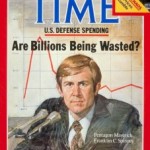
Below is an informative presentation (in pdf format) entitled the State of the U.S. Climate Debate. It has been produced by Professor Judith Curry of the School of Earth and Atmospheric Sciences, Georgia Institute of Technology and will shortly be presented to the House of Lords in the UK Parliament. The pdf file includes her slides with her presentation notes beneath each slide (the original PPT file can be downloaded from this link).
Curry is a prominent US climatologist (curriculum vitae), who has become a bête noire to some global warming ideologues, who accuse her of having flipped to the “dark” side of the climate debate by becoming a dreaded “climate denier” — a favored form of name calling drawing a not too subtle comparison to being a “holocaust denier” or by implication, a Nazi sympathizer. The reason: Curry has become skeptical of IPCC consensus view that (1) global warming has taken place over the last 150 years or so — she agrees that this claim is scientifically uncontroversial; (2) that the warming since 1950 has been caused primarily or entirely by the rapid rise in manmade CO2 emissions — she views this claim as being scientifically unproven*; and (3) that climate science is “settled” and therefore cannot be questioned, and it is now time to allocate the resources to engineer the solutions needed to avert a future worldwide catastrophe. Curry would argue, correctly in my view**, that appeals to consensus are fundamentally unscientific. The first two parts of the consensus view are scientific in nature and can be tested, but the third is clearly political, because it is, as Galileo would instantly recognize, an argument from authority — in this case an authority involved in deciding where money comes from and where it goes.
The fact that promoters of the IPCC position resort to obscene name calling to disparage and isolate respectable scientists, like Curry, simply because they question whether or not a significant part of the warming since 1950 may be due to natural variability, is evidence that the political dimension has trumped the scientific dimension in the climate debate — a point she makes clear in the presentation.
How the political crossfire has politicized the research program needed to reduce the scientific uncertainties in climate science is, in fact, the subject of Curry’s presentation. (Don’t let your personal views of the personalities and biases of the different proponents blind you to her more basic point which is the politicization of science.)
Hers is a problem I am quite familiar with, because I had a ringside seat in Pentagon debates for 28 years that showed me time after time how the interplay of authority, money flows, and politics worked to corrupt the integrity of scientific and engineering research, development, and testing in the Defense Department — a corrupting process that was lubricated by the same kind of fear of a catastrophe in the uncertain future. In climate science they justify the invocation of fear with the antiseptic name: “precautionary principle;” at least, the Pentagon has a more honest term for the same kind of invocation: “threat inflation.”
——————
* Curry distinguishes the following areas of agreement and disagreement in slide 24 (repeated below). My notations characterizing these being scientific or political ingredients are in red:
Agreement:
- Surface temperatures have increased since 1880 [scientific]
- Humans are adding carbon dioxide to the atmosphere [scientific]
- Carbon dioxide and other greenhouse gases have a warming effect on the planet [scientific]
Disagreement:
- Whether the warming since 1950 has been dominated by human causes [scientific]
- How much the planet will warm in the 21st century [scientific — a question of model predictability]
- Whether warming is ‘dangerous’ [scientific & political depending how one defines “dangerous” and juxtaposes it to the potential for adaptation]
- Whether we can afford to radically reduce CO2 emissions, and whether reduction will improve the climate [political & scientific]
** I discussed the role of conditional truth in the practice of science in Lying for the Cause?.



